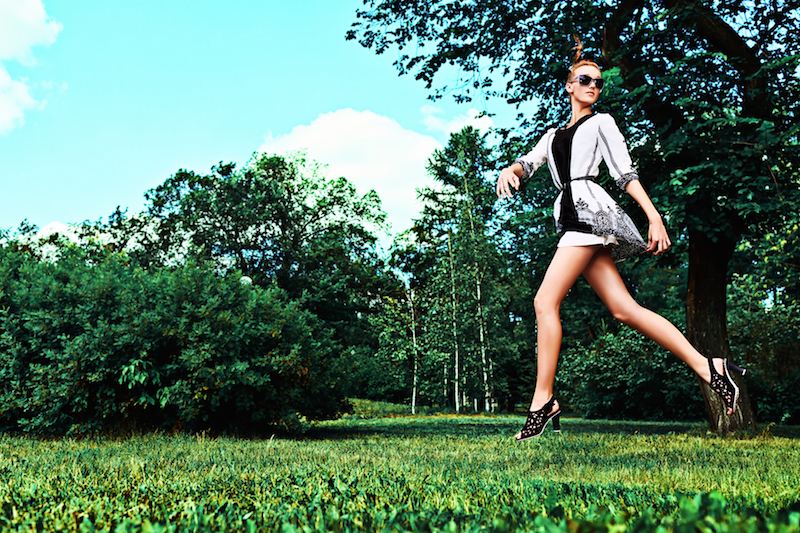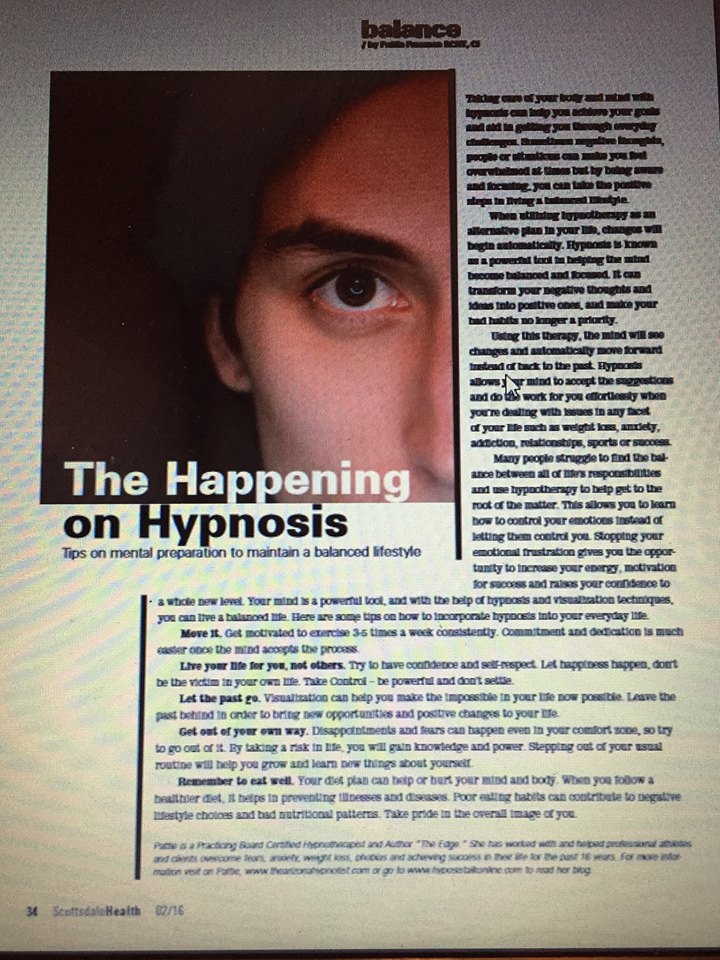|
PHOENIX SPORTS HYPNOSIS |
Pattie Freeman BCHT, MST, CI |
 |
MENTAL PERFORMANCE SKILLS TRAINER 602-400-0653 |
Media Information~
How Hypnotherapy Changed My Mindset (And Helped Bring This Site To Life)
http://www.theshadowleague.com/articles/our-game-2-pattie-freeman-and-the-art-of-sports-hypnotherapy
Scottsdale Health Magazine
Athletes visit Scottsdale hypnotherapist for brain training!
The way Mets outfielder Eric Young Jr. sees it, he trains his body for the rigors of a 162-game baseball season. So why not his mind? "Baseball is a very mental game and one of the few sports you're playing every day," he said. "So the biggest challenge is trying to keep your mind strong through that process." That's why Young, who makes his off-season home in the Valley, sought out Pattie Freeman, a mental sports trainer and hypnotherapist in Scottsdale. Young, who is in town with his club to face the Diamondbacks, began sessions during the off-season leading into spring training. He dropped into Freeman's office Monday for another. "I'm always training other parts of my body to get myself ready to play," he said. "A lot of times, people forget the brain in that. I wanted to make sure we get everything covered from head to toe, including the brain." Young isn't unusual among professional athletes in seeking help through mental training and hypnosis. In fact, Freeman said during spring training she worked with five to six players from every team in the Cactus League. And she estimates that she works regularly with about 20 athletes from the Valley's professional clubs as well as a number of amateur athletes, including Olympians. Some are just trying to fine-tune their game. Others are desperate to find it, and they're willing to try anything that might help. Unlike Young, most would rather keep it all on the down-low. "They think that if people know they need help or want to have help, it's because they're not strong enough to do it on their own," Freeman said. "The thing is, they can do it on their own. The weird thing is they can do it without me, they just don't know how. "That's what I'm trying to help them with. 'This is how you can access that mental ability to be the peak performer that your truly are inside.' " Freeman said at her previous office, players often would go in and out the back door. And she avoids calling it "hypnosis" with many athletes. "I call it visualization and mental sports training," she said. "When they see that, they say, 'Oh, that's cool.' " And yet, Freeman said, athletes tend to be more open-minded about the process than the average person. They understand better than most the value of getting their mind right. "The athlete, in general, is more accepting, period," she said. "They're here to make a change. I love athletes because they do what I ask them to do. They want to be an elite player. They don't try, they do. That's the difference with athletes." Does it work? Well, Freeman said her clients have had enough success that they seek her out, not the other way around. Most athletes come to her through word-of-mouth referral. After hitting .296 in spring training with a .377 on-base percentage, Young started the regular season with one hit in his first 16 at bats at the top of New York's order and was hitting .186 when the Mets got to Arizona Monday. He collected two hits in three at bats, walked once and scored twice Monday night after his visit with Freeman. Often, Freeman said, athletes simply need to learn how to maintain positive thoughts, eliminate distractions, relax, feel comfortable and allow their talent to come out. Others need help coping with pressure. "Our mind is so strong, you have no idea," she said. "Like a baseball player, if somebody says, 'You looked really bad last game,' they start thinking negatively." The hypnosis and mental training, Freeman said, allows players to focus and find that hard-to-explain place athletes call "being in the zone," when the game slows down, the ball or basket looks huge and everything flows. "I teach them how to turn it on, turn it off," she said. "When they're on the field, they come out with their swagger going on. When they leave, they go back to their normal self." Young said he hasn't experienced an epiphany, but he believes having a positive mind frame and visualizing success can only make him better. "I've always been a big believer in the mental side," he said. "In life in general, it's an important aspect to help us progress. A lot of times you suffer trouble because you're already thinking negatively about yourself. "If you want something done, you have to have a game plan in your mind first. Then go for it."
|
|
|
© Copyright Your Company, 2008. All Rights Reserved.




